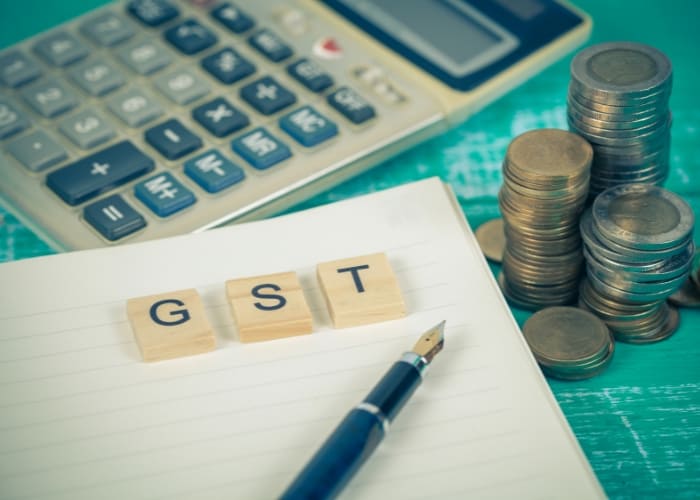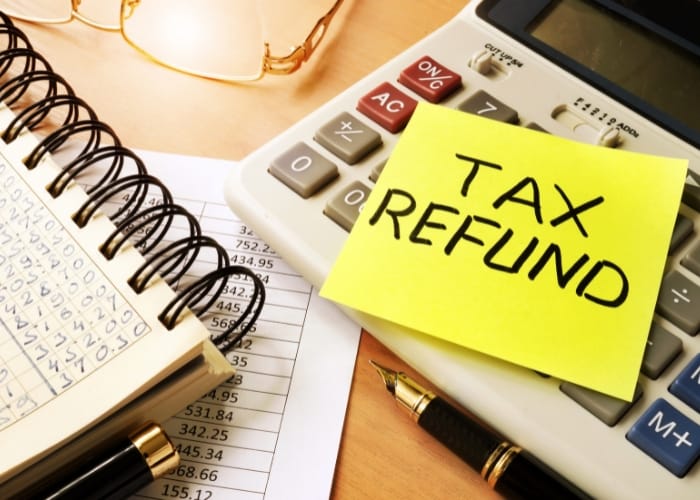Understanding How Simplified GST Pre-Registration Works in Singapore
 The Goods and Services Tax (GST) is a Value-Added Tax (VAT) levied on the import and supply of goods and services. To understand how GST works, we need to understand VAT and how it works. VAT is a consumption tax levied on the value added to goods and services at each stage of production and distribution. It is to be borne by the final consumer. Currently, the GST rate in Singapore is 7%.
The Goods and Services Tax (GST) is a Value-Added Tax (VAT) levied on the import and supply of goods and services. To understand how GST works, we need to understand VAT and how it works. VAT is a consumption tax levied on the value added to goods and services at each stage of production and distribution. It is to be borne by the final consumer. Currently, the GST rate in Singapore is 7%.
In Singapore, GST-registered businesses must collect GST from their customers and remit it to the government. However, businesses that incur GST expenses before they are registered for GST are allowed to claim said GST. This is what is known as a GST pre-registration claim.
Okay, So How Do I Claim GST Back?
To claim pre-registration GST, the company must adhere to certain requirements. See the following.
- The company must be registered for GST on or after 1 July 2015.
- The company must have the necessary documentation to support the claim.
- GST expenses must be related to the company’s activities.
To claim GST, it’s important to maintain organised paperwork and
documentation for your business. This includes keeping a detailed stock account that includes information about your goods, such as quantities used in production, purchase dates, disposal methods, and quantities used in creating other goods. For services, create a list with descriptions, purchase dates, and disposal dates. Remember to keep proof of purchase or disposal, including bills, import permits, payment evidence, and other relevant documents. Keeping track of these records will help ensure a smooth GST-claiming process.
The company can claim pre-registration GST by submitting a GST claim form to the Inland Revenue Authority of Singapore (IRAS). The claim form must include the following information:
- Name and Company Registration Number.
- GST registration date.
- Details of the GST expenses that are being claimed.
- Relevant supporting documentation.
Are There Any GST Exemptions?
Almost every product and service in Singapore has a GST. However, some sectors and companies are free of the tax, including:
- Necessities such as food and medicine
- Education and healthcare
- Financial Services
- Export of goods and services
- Unfurnished properties
- Local supply for investment in precious metals
- International services
Meeting the Criteria for GST Claims
If your business is already registered for GST, you can claim the tax amount. However, to successfully claim the tax, you must meet and fulfil the following set of conditions:
- Your business can claim GST on goods purchased or imported for taxable supplies if your company still holds the goods and;
- It has not been used or supplied by your business before GST registration.
- The pre-registration GST claims are not disallowed under Regulations 26 and 27 of the GST regulations.
As per regulations 26 and 27, you can’t make input tax claims on these expenses:
- Company benefits of family members of staff.
- Expenses for company cars and recreational clubs for the company or private use.
- Medical costs for staff, excluding the Work Injury Compensation Act.
- No tax deductions for betting, lotteries, fruit machines, and other games of chance.
As for GST Pre-Registration on property rental, utilities and services, see below. Businesses can claim GST incurred on property rental, utilities, and services if the expenses are:
- Incurred to make taxable supplies.
- Incurred within six months before GST registration.
- Not based on supplies made before GST registration.
Also, businesses cannot claim GST on disallowed input tax.
Apportionment of GST Pre-Registration in Singapore
When you register for GST, you can claim back the GST you paid on goods and services you use to make taxable supplies. However, if you have already sold, transferred, or disposed of some of the goods you acquired before your registration, you can only claim back the GST on the units you still have at the time of registration. The same principle applies to property rental, utilities, and related services. If you start using these services before you register for GST, you can only claim back the GST on the portion of the services that you use to make taxable supplies after your registration.
GST Incentives That You Should Know
While GST applies to the majority of products and services in Singapore, there exist incentives that assist businesses in reducing their tax liabilities. Moreover, these incentives provide companies with greater flexibility in fulfilling their GST obligations. These incentives can help reduce compliance costs, and companies can save money and improve their cash flow. The following are examples of incentives that may benefit you:
Cash Accounting Scheme
This scheme allows businesses to account for GST based on when they receive customer payments rather than when they make sales. This can help businesses to improve their cash flow. Meaning they will not have to pay GST on sales until they have received payment. To be eligible for the Cash Accounting Scheme, businesses must meet certain criteria, such as having a turnover of less than S$1 million and not being a member of a group of companies.
Discounted Sale Price Scheme
For a second-hand or used vehicle, you only need to pay GST for 50% of the sale price. To be eligible for the Discounted Sale Price Scheme, businesses must meet certain criteria, such as being a motor dealer who is registered for GST and who has a valid motor dealer’s licence.
Gross Margin Scheme
This scheme is a simplified method of calculating GST for second-hand dealers. Under this scheme, businesses only need to pay GST on the difference between the selling price and the cost price of the goods. This can be beneficial for second-hand dealers, as the actual value of goods decreases when it is used. To be eligible for the Gross Margin Scheme, businesses must meet certain criteria, such as being a registered GST payer and selling only second-hand goods.
Hand-Carried Exports Scheme
The Hand-Carried Exports Scheme (HCES) is a scheme that allows businesses to zero-rate their supplies of goods that are hand-carried out of Singapore (via Changi International Airport). This means that businesses do not have to charge GST on these supplies. To be eligible for the HCES, businesses must meet certain criteria, such as being a registered GST payer and exporting goods that are not dutiable or taxable in Singapore.
Import GST Deferment Scheme
The Import GST Deferment Scheme (IGDS) allows approved businesses to defer the payment of GST on imported goods until the due date, which is usually the 15th of the following month. This scheme can help businesses improve their cash flow by reducing the amount of upfront GST they need to pay. To be eligible for the IGDS, businesses must meet certain requirements, such as valid GST registration and filing their GST returns on time.
Major Exporter Scheme
The Major Exporter Scheme (MES) is for businesses that export a significant amount of their goods. Under the MES, businesses are not required to pay GST on non-dutiable goods that they import into Singapore. Goods that are dutiable are subject to GST, but businesses can claim a refund of the GST paid when they export the goods. To be eligible for the MES, businesses must meet certain requirements, such as exporting at least 80% of their goods and having a valid GST registration.
Tourist Refund Scheme
The Tourist Refund Scheme (TRS) is a scheme that allows tourists to claim a refund of the GST they paid on goods that they purchase in Singapore. To be eligible for the TRS, tourists must purchase goods that are dutiable and that are worth more than S$500. Tourists can claim a refund of the GST at participating retailers or at the Singapore Customs Tourist Refund Counters at Changi Airport and Jewel Changi Airport. If your company is accepted in the Tourist Refund Scheme, you can refund tourist customers.
Zero GST Warehouse Scheme
The Zero GST Warehouse Scheme (ZGWS) allows businesses to store non-dutiable imported goods in a zero-GST warehouse without having to pay GST. Businesses that use the ZGWS can only sell the goods to other businesses that are also registered for the ZGWS. To be eligible for the ZGWS, businesses must meet certain requirements, such as having a valid GST registration and storing the goods in a secure warehouse.
How We Can Assist You
For a business to claim the GST pre-registration, they must prove they can fulfil the terms and conditions. However, we understand that registering or filing for GST can be tricky. If you need a hand to help you out with GST pre-registration, then simply reach out to 3E Accounting! With our team of professionals, we can assist you so that you can worry about one less thing.










